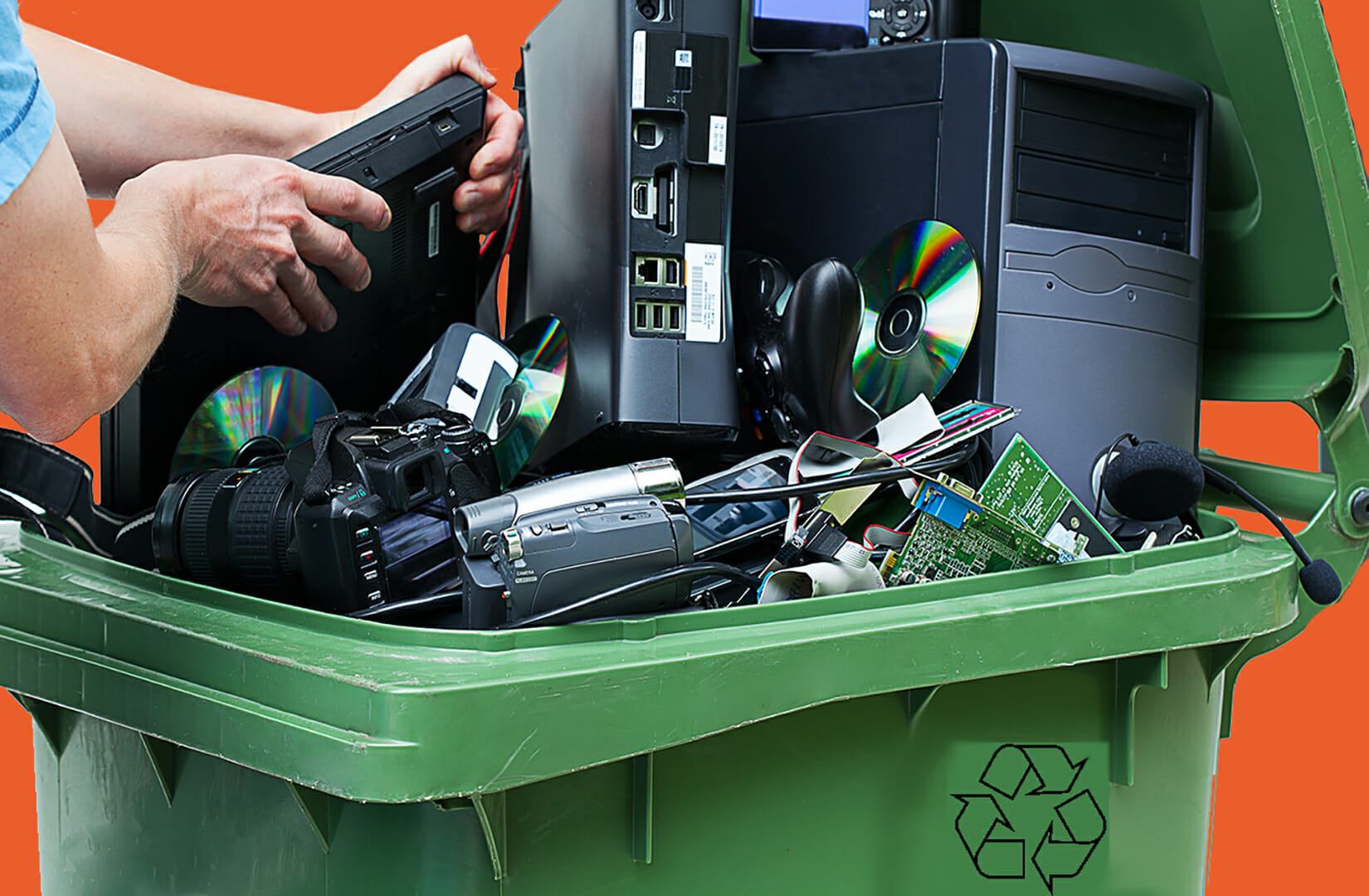

How Businesses Can Benefit from Electronic Waste Recycling Programs
In today’s technology-driven world, businesses rely heavily on electronic devices for their daily operations. From computers and printers to smartphones and servers, these electronic assets are essential for productivity and communication.
However, as technology rapidly advances, older electronics become obsolete, leading to an increasing amount of electronic waste, or e-waste. Implementing e waste recycling programs offers numerous benefits for businesses, including environmental, economic, and reputational advantages.
This blog explores how businesses can benefit from electronic waste recycling programs and why they are essential for sustainable operations.
Understanding Electronic Waste Recycling
E-waste recycling involves the collection, dismantling, and processing of electronic devices to recover valuable materials and safely dispose of hazardous substances.
This process helps prevent environmental pollution, conserves natural resources, and reduces the volume of e-waste in landfills. For businesses, participating in electronic waste recycling programs can yield significant benefits.
Key Components of Electronic Waste Recycling Programs
- Collection and Logistics: Coordinating the collection and transportation of e-waste from business premises to recycling facilities.
- Dismantling and Processing: Breaking down electronic devices to separate hazardous materials and recover valuable components.
- Material Recovery: Extracting and reprocessing metals, plastics, and other materials for reuse in manufacturing.
- Safe Disposal: Ensuring hazardous substances are handled and disposed of in an environmentally friendly way.
Are you Looking for recycling center near you? Simply search for Electronic Waste Recycling Center Near Me
Environmental Benefits
1. Reducing Environmental Impact
One of the most significant benefits of electronic recycling programs for businesses is the reduction of their environmental footprint. E-waste contains hazardous substances such as lead, mercury, and cadmium, which can leach into the soil and water if improperly disposed of. By recycling electronic waste, businesses can ensure these toxic materials are safely managed and do not contribute to environmental pollution.
Hazardous Substances in E-Waste
- Lead: Found in CRT monitors and batteries, toxic to the nervous system.
- Mercury: Present in LCD screens and other components, harmful to human health and the environment.
- Cadmium: Used in batteries and other electronics, carcinogenic and highly toxic.
2. Conserving Natural Resources
Electronic waste recycling allows businesses to recover valuable materials such as gold, silver, copper, and plastics. These materials can be reprocessed and used in new electronic devices, reducing the need for virgin resources. This conservation of natural resources supports sustainable manufacturing practices and helps preserve the environment.
Recoverable Materials
- Metals: Gold, silver, copper, and aluminum can be extracted and reused.
- Plastics: Can be reprocessed for use in new products.
- Glass: Recycled glass from monitors and screens can be repurposed.
Economic Benefits
3. Cost Savings and Revenue Generation
Participating in electronic waste recycling programs can lead to cost savings for businesses. By recycling obsolete electronics, companies can reduce storage costs associated with holding onto old equipment.
Additionally, some recycling programs offer financial incentives or rebates for valuable materials recovered from e-waste. Businesses can also benefit from selling refurbished electronics or parts, generating additional revenue.
Financial Incentives
- Rebates: Some programs offer rebates for recyclable materials.
- Revenue from Refurbished Electronics: Selling refurbished devices can generate income.
4. Compliance with Regulations
In many regions, businesses are required to comply with e-waste disposal regulations. These laws mandate proper handling and recycling of electronic waste to prevent environmental contamination. By participating in electronic waste recycling programs, businesses ensure compliance with local, state, and federal regulations, avoiding potential fines and legal issues.
Regulatory Compliance
- State Laws: Varying requirements for e-waste recycling.
- Federal Guidelines: EPA regulations on hazardous waste disposal.
5. Enhancing Corporate Social Responsibility (CSR)
Corporate Social Responsibility (CSR) is an important aspect of modern business practices. Companies that actively participate in e recycling programs demonstrate their commitment to environmental sustainability and social responsibility. This can enhance their reputation, build trust with stakeholders, and attract environmentally conscious customers and investors.
CSR Benefits
- Brand Reputation: Improved public perception of the company’s commitment to sustainability.
- Stakeholder Trust: Building trust with customers, investors, and the community.
Operational Benefits
6. Improving Office Space and Efficiency
Old and unused electronic devices can take up valuable office space, leading to clutter and inefficiencies. By recycling outdated electronics, businesses can free up space, improve organization, and create a more efficient working environment. This can also lead to improved employee productivity and morale.
Office Space Management
- Decluttering: Removing obsolete electronics to free up space.
- Efficiency: Creating a more organized and efficient workspace.
7. Data Security
Data security is a critical concern for businesses when disposing of old electronic devices. Electronic waste recycling programs often include data destruction services, ensuring that sensitive information is securely erased from devices before recycling. This protects businesses from data breaches and ensures compliance with data protection regulations.
Data Destruction Services
- Secure Erasure: Ensuring all data is completely removed from devices.
- Compliance: Meeting data protection and privacy regulations.
Technological Benefits
8. Access to New Technology
Recycling outdated electronic devices can provide businesses with the opportunity to upgrade to the latest technology. Newer devices often offer improved performance, energy efficiency, and advanced features that can enhance business operations. Participating in electronic waste recycling programs can facilitate this transition, ensuring that old devices are responsibly disposed of while adopting new technology.
Upgrading Technology
- Enhanced Performance: New devices offer better speed and capabilities.
- Energy Efficiency: Modern electronics are more energy efficient.
9. Supporting Technological Innovation
The recycling industry drives technological innovation by developing new methods and technologies for efficiently recycling e-waste. By participating in e-waste recycling programs, businesses support these innovations, contributing to the advancement of sustainable recycling technologies and practices.
Innovations in Recycling
- Advanced Processing Techniques: Improving the efficiency of material recovery.
- New Technologies: Developing eco-friendly methods for handling e-waste.
Social Benefits
10. Creating Jobs and Economic Growth
The electronic waste recycling industry provides numerous job opportunities, from collection and logistics to processing and refurbishment. By participating in electronic waste recycling programs, businesses support job creation and contribute to economic growth in their communities.
Employment Opportunities
- Collection and Logistics: Jobs in gathering and transporting e-waste.
- Processing and Refurbishment: Employment in recycling facilities and refurbishing electronics.
11. Promoting Community Engagement and Awareness
Businesses that actively engage in electronic waste recycling programs can promote awareness within their communities about the importance of responsible e-waste management. Educational campaigns and community recycling events can inspire others to recycle their old electronics, fostering a culture of sustainability and environmental stewardship.
Community Initiatives
- Educational Campaigns: Raising awareness about e-waste recycling.
- Recycling Events: Organizing community events to collect and recycle electronics.
Conclusion
Electronic waste recycling programs offer many benefits for businesses, from environmental and economic advantages to operational and social gains. By implementing these programs, businesses can reduce their environmental impact, conserve natural resources, and enhance their corporate reputation. Additionally, participating in electronic waste recycling helps businesses comply with regulations, improve data security, and support technological innovation.
As businesses continue to adopt and upgrade electronic devices, the importance of responsible e-waste management cannot be overstated. By embracing electronic waste recycling programs, businesses not only contribute to a more sustainable future but also gain a competitive edge in an increasingly eco-conscious market. It’s time for businesses to take action and make electronic waste recycling a priority, ensuring a cleaner, greener, and more sustainable world for generations to come.

